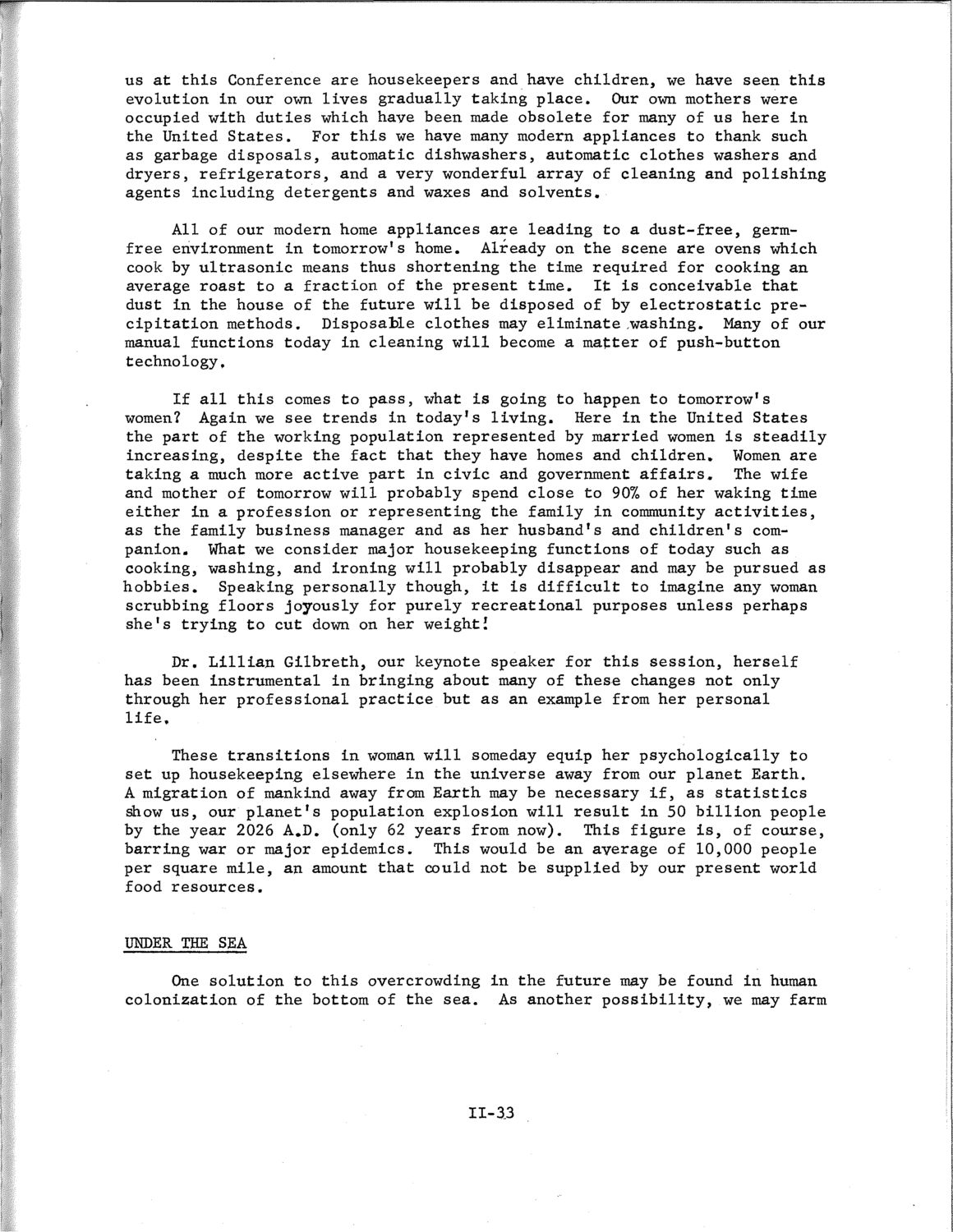| |
| |
Caption: SWE - Proceedings of the First International Conference of Women Engineers and Scientists
This is a reduced-resolution page image for fast online browsing.

EXTRACTED TEXT FROM PAGE:
us at this Conference are housekeepers and have children, we have seen this evolution in our own lives gradually taking place. Our own mothers were occupied with duties which have been made obsolete for many of us here in the United States. For this we have many modern appliances to thank such as garbage disposals, automatic dishwashers, automatic clothes washers and dryers, refrigerators, and a very wonderful array of cleaning and polishing agents including detergents and waxes and solvents. All of our modern home appliances are leading to a dust-free, germfree environment in tomorrow's home. Already on the scene are ovens which cook by ultrasonic means thus shortening the time required for cooking an average roast to a fraction of the present time. It is conceivable that dust in the house of the future will be disposed of by electrostatic precipitation methods. Disposable clothes may eliminate ,washing. Many of our manual functions today in cleaning will become a matter of push-button technology. If all this comes to pass, what is going to happen to tomorrow's women? Again we see trends in today's living. Here in the United States the part of the working population represented by married women is steadily increasing, despite the fact that they have homes and children. Women are taking a much more active part in civic and government affairs. The wife and mother of tomorrow will probably spend close to 907° of her waking time either in a profession or representing the family in community activities, as the family business manager and as her husband's and children's companion. What we consider major housekeeping functions of today such as cooking, washing, and ironing will probably disappear and may be pursued as hobbies. Speaking personally though, it is difficult to imagine any woman scrubbing floors joyously for purely recreational purposes unless perhaps she's trying to cut down on her weight I Dr. Lillian Gilbreth, our keynote speaker for this session, herself has been instrumental in bringing about many of these changes not only through her professional practice but as an example from her personal life. These transitions in woman will someday equip her psychologically to set up housekeeping elsewhere in the universe away from our planet Earth. A migration of mankind away from Earth may be necessary if, as statistics show us, our planet's population explosion will result in 50 billion people by the year 2026 A.D. (only 62 years from now). This figure is, of course, barring war or major epidemics. This would be an average of 10,000 people per square mile, an amount that could not be supplied by our present world food resources. UNDER THE SEA One solution to this overcrowding in the future may be found in human colonization of the bottom of the sea. As another possibility, we may farm 11-3.3
| |